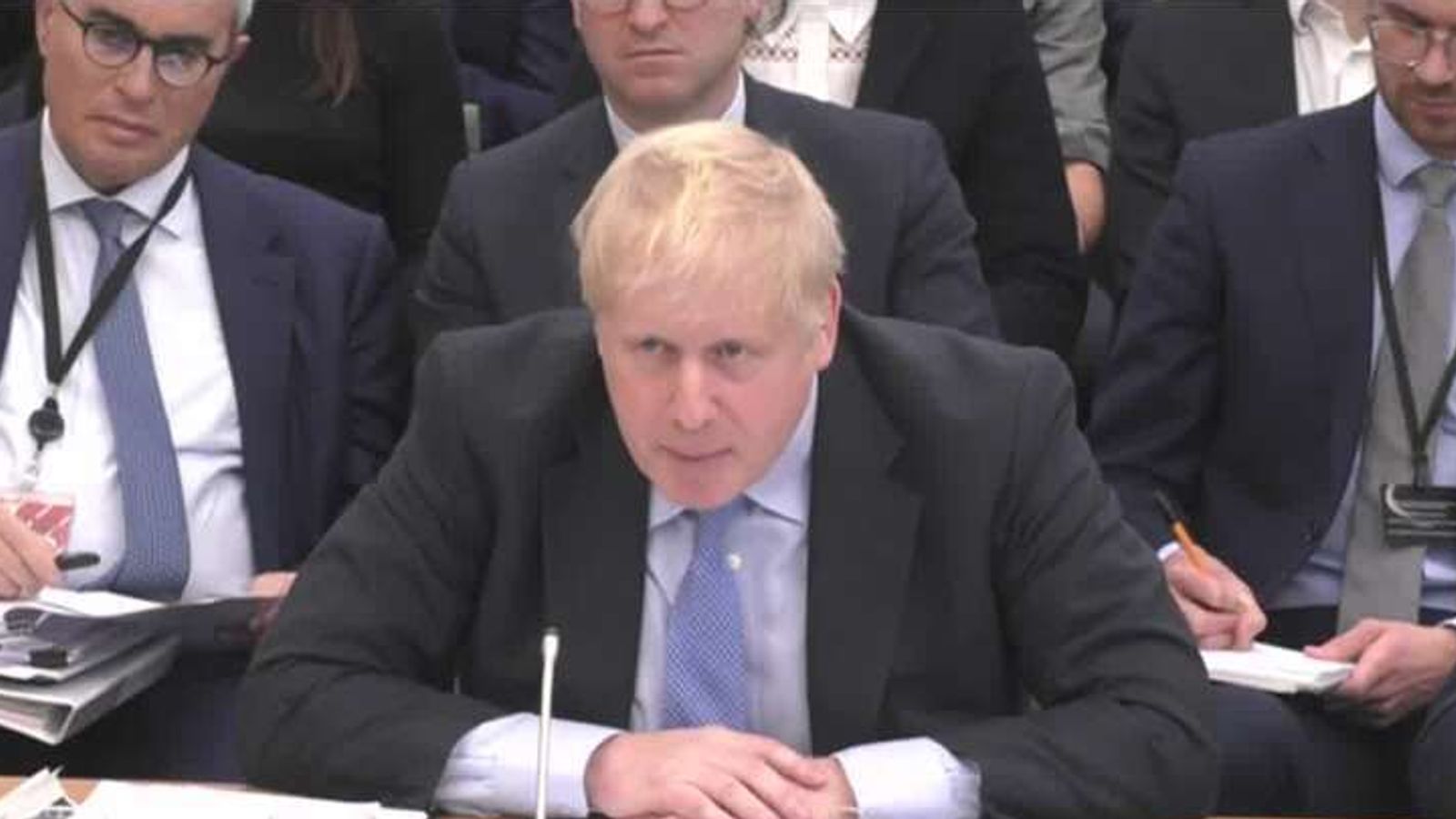Boris Johnson knowingly misled parliament over partygate, privileges committee finds

A parliamentary inquiry has concluded that Boris Johnson knowingly misled parliament multiple times with his statements about parties in Downing Street that breached COVID rules.
The privileges committee of MPs found Mr Johnson’s breaches serious enough to recommend a suspension of 90 days if he were still an MP – far exceeding the period needed to trigger a recall petition and possible by-election.
In the highly anticipated report, published this morning, the committee found that Mr Johnson:
• Misled the house on multiple occasions
• Committed further contempt in his conduct last week by impugning the committee, thereby undermining the democratic process of the House
• Was complicit in the campaign of abuse and attempted intimidation of the committee
The committee also recommended that since Mr Johnson has resigned as an MP, he should not be granted a former member’s pass to parliament.
In a scathing 30,000 word assessment, the committee said that in “deliberately misleading the House Mr Johnson committed a serious contempt”.
Advertisement
“The contempt was all the more serious because it was committed by the prime minister, the most senior member of the government.
“There is no precedent for a prime minister having been found to have deliberately misled the House.”
The former prime minister immediately hit back by branding the committee’s report a “charade”, adding: “I was wrong to believe in the committee or its good faith.
“The terrible truth is that it is not I who has twisted the truth to suit my purposes. It is Harriet Harman and her committee.
“This is a dreadful day for MPs and for democracy. This decision means that no MP is free from vendetta, or expulsion on trumped up charges by a tiny minority who want to see him or her gone from the Commons.
“I do not have the slightest contempt for parliament, or for the important work that should be done by the Privileges Committee.
But for the Privileges Committee to use its prerogatives in this anti-democratic way, to bring about what is intended to be the final knife-thrust in a protracted political assassination – that is beneath contempt.”
The former prime minister has been under investigation by the Commons privileges committee since last June, after an investigation by police and then senior civil servant Sue Gray confirmed a series of gatherings had taken place in Downing Street during lockdowns.
The cross-party committee, led by Labour MP Harriet Harman, has been assessing whether Mr Johnson misled parliament – either recklessly or deliberately – with his statements claiming all COVID rules and guidance were followed by Number 10.
The publication of the report comes after Mr Johnson dramatically quit as an MP on Friday after receiving its draft findings.
He launched a blistering attack on the committee in his resignation statement, accusing it of “egregious bias” and claiming its MPs were determined to “drive me out of Parliament”.
His lawyers submitted a response to the privileges committee at 11.57 on Monday night, prompting a delay to the expected publication of the report.
In a statement on Tuesday, Mr Johnson criticised the delay and dismissed the committee’s findings, saying: “The Privileges Committee should publish their report and let the world judge their nonsense.
“They have no excuse for delay. Their absurdly unfair rules do not even allow any criticism of their findings. I have made my views clear to the committee in writing – and will do so more widely when they finally publish.”
In a last-ditch attempt to disparage the Tory-majority panel on the eve of publication, he called for its most senior Conservative member to resign.
He accused Sir Bernard Jenkin of “monstrous hypocrisy” after the Guido Fawkes website reported the MP had gone to a drinks party in Parliament held by Commons Deputy Speaker Dame Eleanor while COVID restrictions were in place in 2020.
But Mr Johnson was accused of attempting to distract from the report’s findings by opposition MPs, while a source close to the committee reportedly dismissed the intervention as “desperate stuff”.
Sir Bernard has been contacted while a representative for Dame Eleanor declined to comment.
The committee has collected evidence, including WhatsApp messages, emails and photos, from those understood to have been at the parties and those with knowledge of them.
Ahead of being questioned by the committee in March, Mr Johnson accepted he misled parliament but insisted his statements were made “in good faith”.
In his 52 pages of written evidence, provided before his oral session, he said it was “unprecedented and absurd” to claim that relying on assurances from “trusted advisers” was “in some way reckless”.
He also said while he personally attended five of the events considered by the committee, he “honestly believed that these events were lawful work gatherings”.
In an interim report published in early March, the committee said the evidence strongly suggested breaches of coronavirus rules in No 10 would have been “obvious” to Mr Johnson.
The committee said it had identified at least four occasions where Mr Johnson may have misled MPs, including when he told parliament in December 2021 that no rules or guidance were broken – when subsequent investigations by Ms Gray and the Metropolitan Police found otherwise.

